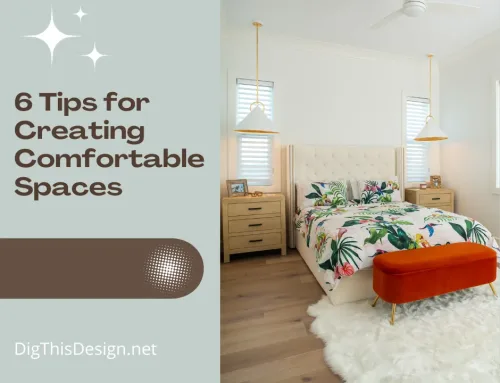The good news is, residential window tinting helps reduce your skin cancer risks. These window tinting films also lower risks for eye strains and other vision issues. What’s more, they’re great at helping keep your home comfortable all-year-round!
Each year in the U.S. alone, up to 3.3 million people get diagnosed with basal and squamous cell skin cancers. However, the total number of diagnoses are as many as 5.4 million cases. Interestingly, one of the top risk factors behind skin cancers is exposure to ultraviolet radiation. It is also worth noting that people with blue eyes, green eyes, blond hair, or red hair also seem to have a higher risk for skin cancer.
Ready to learn how these window treatments help and why you should invest in them? Then let’s dive right into the surprising reasons to tint your home windows.
6 Excellent Reasons for Residential Window Tinting
1 • Protects Your Skin from UVA Rays
Window tinting is one of the best window treatment options, as it helps reduce your exposure to UV rays. These “rays” are a source of ultraviolet radiation which is a type of electromagnetic radiation.
Never-the-less, too much UV causes various skin and eye problems. For instance, UVA rays are strong enough to penetrate the skin’s outer layer. UVA is also 500 times more abundant than UVB in sunlight. Moreover, it has lower energy levels than UVB, but can still damage and mutate skin cells.
In fact, scientists say that UVA rays are strong enough to mutate the melanocyte cells in the skin. Over time, this indirect damage can lead to skin cancer.
Over a lifetime, UVA rays cause damage to the skin by making it more prone to wrinkles. UVA is also a huge culprit behind photo-aged skin. The good news is, the right high-quality window tinting products totally block UV radiation. That alone is a good reason to get tinting for your home windows.
2 • Effective in Blocking UVB Rays
As with UVA rays, home window tinting films also block UVB rays. While UVB has a shorter wavelength than UVA, it’s also more powerful and intense. This is how UVB radiation causes direct burn damage to skin cells.
So, if you’re wondering what causes sunburns, the answer is UVB radiation. Unfortunately, UVB causes more than just sunburns. In fact, it may also cause most types of skin cancer. Two such skin cancers are basal cell carcinoma and squamous cell carcinoma. Researchers also say that it’s one of the leading causes of melanoma skin cancer.
Either way, it’s best to keep your home as UVB radiation-free as possible. One of the best ways to do that is to install window films on all of your home windows.
3 • Minimizes Risks of Glare-Related Concerns
Intense light brings instant discomfort to the eyes. In fact, harsh lights and “glare” might even cause loss of visual ability. Incredibly, statistics show that bright sunlight is so blinding that it raises the risk of vehicle crashes by at least 16%.
At home, glare occurs when you have untreated windows with bright sunlight streaming into your home. When that intense light hits reflective surfaces in your home, it results in uncomfortable glare. Such surfaces include polished floors, tiles, enamel coating, mirrors, and glass.
Either way, too much glare at home makes it harder for you to see what’s on your TV or computer screen. Depending on the level of glare, it gets distracting, discomforting, or disabling. Moreover, some people might even have a brief period of “blindness” when faced with excessive glare.
4 • Great Sunscreen for Furniture & Fabrics
UV exposure also damages leather within just four to six months. So, if you have leather couches or sofas near untreated windows, expect them to fade or crack in less than a year.
You can think of leather as being a lot like your skin, so the more UV rays it gets, the drier it gets. In addition, the sun’s heat and light strip off the leather’s natural oils. Then, over time, this dryness takes a toll on the flexibility and elasticity of the leather.
The same thing happens to other fabrics, especially carpets and upholstery. In fact, researchers say that 40% of fading in such materials is due to UV exposure. However, with window tinting, you keep these damages at bay.
5 • Helps Keep Heat from Leaving Your Home
Bare windows already allow up to 30% of heat energy to exit a building and there goes your energy – escaping out the window!
Fortunately, some types of window tinting products can also reflect heat (or cold). Why not take advantage of this to keep warm or cool air inside your home? With use of the window tinting film, it reflects back and provides a useful layer of insulation for your windows. That’s a win-win for your comfort and your energy bill!
6 • Eases the Burden to Your HVAC System
Bare windows makes it harder for your heater or AC to heat or cool your home. Again, that has to do with how windows loose energy. The thing is, this heat loss makes your HVAC system run longer than necessary.
All that extra work of pumping extra quantities of air causes its parts to burn out faster than normal. In time, this additional burden might even cause premature failure in your HVAC system.
Since tinted windows retain optimal indoor temperatures, they also help your HVAC system. As a result, your heater or cooler will perform better, not to mention, last longer.
Your Residential Window Tinting
These are just some of the many reasons to invest in residential window tinting. UV safety aside, window tinting films also help drive down your energy bills with their inherent insulation qualities. All-in-all, these benefits make tinted windows an excellent choice for homeowners.
If you have any other tips to suggest please do so in the comments below. Ready for more great information to get your home in tip-top shape? Then, please feel free to look below and check out the links to more interesting articles about all things design.
Images Courtesy of Canva.
Other Posts You Might Enjoy:
5 Problems Faced by People with Smaller Bathrooms
How to Buy a Home with Good Interior Design





